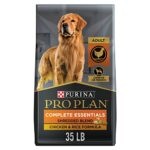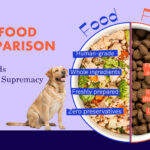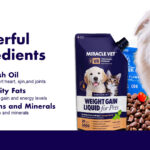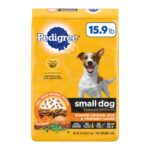How to Choose the Right Food for a Senior Dog?Choosing the right food for a senior dog involves considering their specific health needs and activity levels. Opt for diets rich in high-quality proteins and easy to digest for older canines.
Selecting the appropriate nutrition for your aging dog is crucial to maintaining their health and happiness. As dogs age, their dietary requirements shift, necessitating a focus on lower-calorie foods to prevent weight gain and formulations that support joint health. A well-balanced senior dog food should also contain a blend of antioxidants to combat age-related cellular damage.
Digestibility becomes increasingly important, making it essential to find food with high-quality ingredients that won’t upset your pet’s stomach. Always consult with your veterinarian before transitioning your senior dog to a new diet, as they can provide personalized recommendations based on your dog’s individual health concerns and needs. With the right food, your senior dog can enjoy their golden years with vigor and contentment.
Special Nutritional Needs Of Senior Dogs
As our canine companions enter their golden years, their dietary needs shift. Understanding the special nutritional needs of senior dogs is crucial to maintaining their health and vitality. Older dogs often require diets lower in calories but rich in nutrients that support aging bodies. Let’s explore how to cater to their changing nutritional landscape.
Age-related Changes
With age, dogs experience metabolic and digestive changes. Their energy levels may decrease, necessitating fewer calories. High-quality proteins become essential to maintain muscle mass and support the immune system. Here are key components to consider for a senior dog’s diet:
- Protein: Sufficient for muscle maintenance, yet easy to digest.
- Fats: Necessary for energy, but in moderate amounts to prevent weight gain.
- Fiber: Aids digestion and helps manage weight.
- Vitamins and Minerals: Crucial for bone health and metabolic processes.
Common Health Issues
Senior dogs often face health challenges such as joint problems, heart disease, and kidney issues. Tailored nutrition can help manage these conditions. Below is a table highlighting common ailments and dietary considerations:
| Health Issue | Dietary Consideration |
|---|---|
| Joint Problems | Supplements like glucosamine and chondroitin |
| Heart Disease | Low sodium diets |
| Kidney Issues | Reduced phosphorus and high-quality protein |
Always consult a vet to tailor your senior dog’s diet. This ensures they receive the right balance of nutrients to support their well-being.
The Importance Of Diet In Aging Canines
As dogs age, their nutritional needs shift. Proper diet plays a crucial role in maintaining their health and quality of life. Senior dogs often require fewer calories, but more protein, fiber, and certain nutrients. A tailored diet can prevent weight gain and support their aging bodies.
Weight Management
Excess weight can strain a senior dog’s body, leading to health issues. A diet with balanced nutrients and appropriate calorie content is essential for weight control.
- Low-fat options help manage weight.
- High-fiber foods promote satiety and digestive health.
- Regular weight checks ensure the diet is working.
Supporting Mobility
Joint health is vital for senior dogs. Omega-3 fatty acids and glucosamine can support mobility.
| Nutrient | Benefit |
|---|---|
| Omega-3s | Reduce inflammation |
| Glucosamine | Support joint health |
Include regular exercise to complement a mobility-supporting diet.
Analyzing Dog Food Labels
As your dog enters its golden years, the food you choose plays a pivotal role in maintaining their health and happiness. Analyzing dog food labels is more than a cursory glance at the packaging; it’s about understanding what each ingredient means for your senior dog’s well-being. Let’s delve into the specifics of what to seek out and what to sidestep on the journey to optimal nutrition for your aging companion.
Key Ingredients To Look For
Senior dogs have unique dietary needs. Here are the key ingredients to look for:
- High-quality protein: Supports muscle maintenance and repair.
- Fiber: Aids in healthy digestion and bowel movements.
- Omega-3 and Omega-6 fatty acids: Promote a shiny coat and healthy skin.
- Glucosamine and Chondroitin: Help maintain joint health and mobility.
- Antioxidants: Strengthen the immune system and fight inflammation.
- Vitamins and minerals: Essential for overall health and well-being.
Ingredients To Avoid
Some ingredients can harm your senior dog. Stay clear of these:
- Artificial preservatives: Such as BHT, BHA, or ethoxyquin.
- Artificial colors and flavors: Offer no nutritional value and can cause allergies.
- Excessive fillers: Like corn, wheat, and soy, which may lead to weight gain.
- Sugar and sweeteners: Can lead to diabetes and obesity.
- Excess sodium: Bad for dogs with heart or kidney issues.
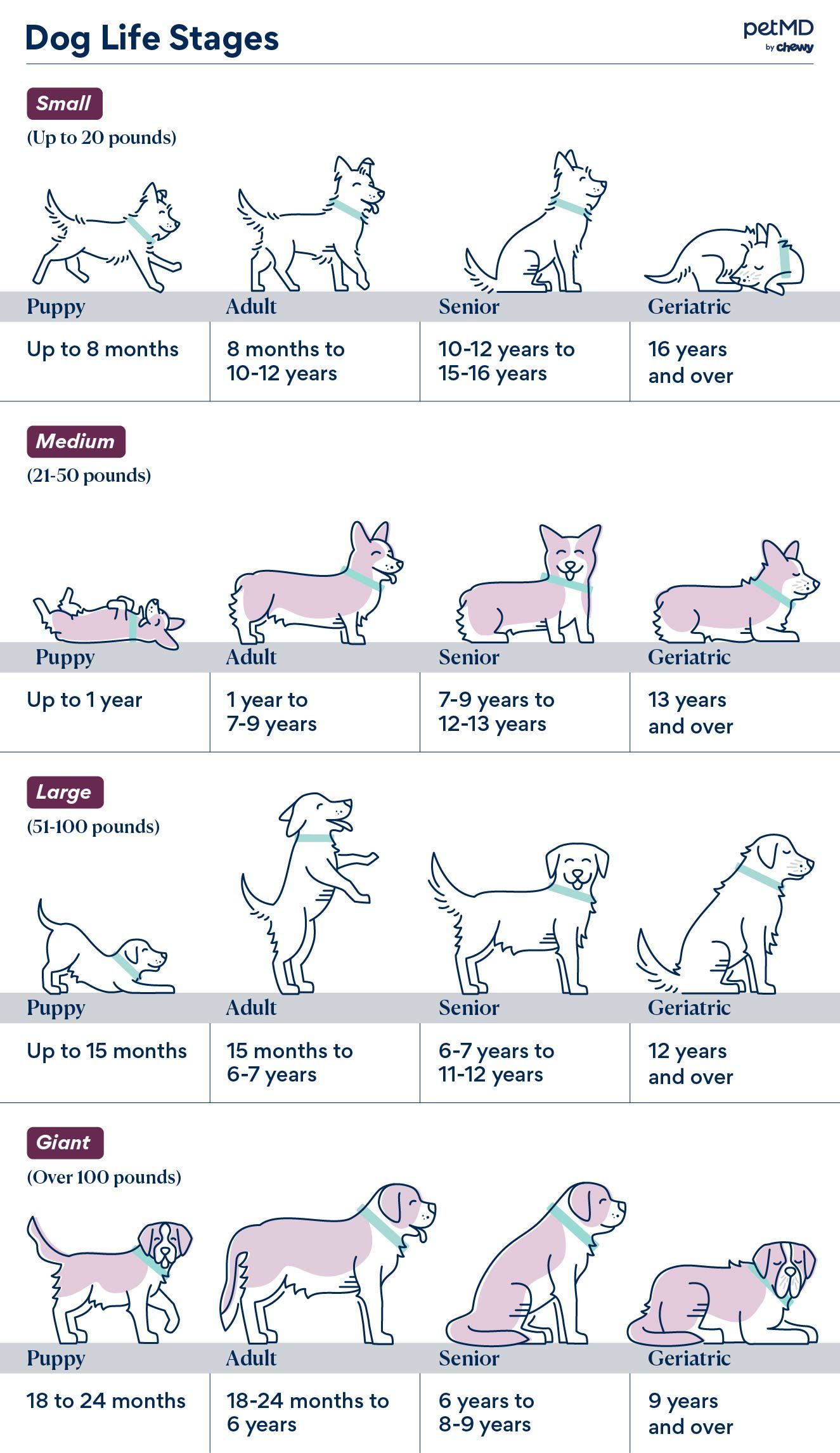
Credit: www.petmd.com
Wet Food Vs. Dry Food For Seniors
Choosing between wet and dry food for senior dogs is crucial. Each type offers different benefits and challenges.
Pros And Cons
| Type | Pros | Cons |
|---|---|---|
| Wet Food | Easy to eatRich in flavorHelps hydration | More expensiveShorter shelf life |
| Dry Food | Cost-effectiveLong shelf lifeGood for teeth | Harder to chewLess tasty |
Hydration Considerations
Senior dogs need more water. Wet food can help meet this need.
Dry food often needs extra water. Always keep fresh water nearby.
The Role Of Supplements
As senior dogs age, their nutritional needs change. One way to address these needs is through dietary supplements. Supplements can ensure that aging dogs get the necessary nutrients for overall well-being. Now, let’s explore the specific roles of supplements in supporting joint health and cognitive function in senior dogs.
Joint Health
Glucosamine and chondroitin are common supplements that promote joint health. These compounds help maintain cartilage and reduce joint pain. They can make a big difference for a dog with arthritis or mobility issues.
Another key supplement for joints is omega-3 fatty acids. These nutrients, particularly EPA and DHA, reduce inflammation. This can help keep your senior dog active and comfortable.
Antioxidants like Vitamin E and C also play a role in joint health. They fight free radicals that can damage joint cells. Below is a table of supplements that support joint health:
| Supplement | Benefits |
|---|---|
| Glucosamine | Helps maintain cartilage |
| Chondroitin | Reduces joint pain |
| Omega-3 Fatty Acids | Reduces inflammation |
| Vitamin E and C | Fights free radicals |
Cognitive Function
For cognitive health, supplements like fish oil and antioxidants are vital. They protect the brain from aging.
Another important supplement is medium-chain triglycerides (MCTs). MCTs provide brain energy. They help keep your senior dog’s mind sharp.
Phosphatidylserine is a supplement that supports brain cell membranes. It can improve memory and learning in aging dogs.
Here’s a list of supplements that benefit cognitive function:
- Fish oil – protects brain cells
- Antioxidants – fight brain aging
- MCTs – provide brain energy
- Phosphatidylserine – improves memory
Homemade Diets: Are They Better?
Choosing the right food for a senior dog is crucial for their health and well-being. Many pet owners wonder if homemade diets offer superior nutrition. Understanding the benefits and considerations of homemade meals is key to making an informed decision for your furry friend.
Nutritional Balance
Senior dogs have unique nutritional needs. A well-balanced diet is essential. Homemade meals can be tailored to your dog’s specific requirements. Yet, achieving the right balance is challenging. Essential nutrients must be present in the correct ratios. Consult with a vet or a pet nutritionist. They can help design a diet that supports your senior dog’s health.
- Protein: Supports muscle maintenance and repair.
- Fats: Provides energy and keeps the coat healthy.
- Carbohydrates: Offers a source of quick energy.
- Vitamins and Minerals: Crucial for overall health.
Recipe Tips
When preparing homemade meals, keep these tips in mind:
| Ingredient | Benefit |
|---|---|
| Lean meats | High-quality protein |
| Whole grains | Easy to digest carbs |
| Fresh veggies | Vitamins and fiber |
| Omega-3 sources | Supports joint health |
Start with simple recipes. Use fresh, whole-food ingredients. Avoid onions, chocolate, grapes, and other harmful items. Rotate ingredients to provide a variety of nutrients. Ensure that any diet change is gradual. This helps prevent digestive upset.
Remember, consistency is key. Follow recipes closely. Measure ingredients carefully. This helps maintain the diet’s nutritional integrity. Always store homemade dog food properly. Refrigerate or freeze it to keep it fresh and safe for consumption.
Senior dogs thrive on love and care. The right diet enhances their golden years. Whether choosing homemade diets or commercial options, consult professionals. Tailor nutrition to your dog’s individual needs, and watch them enjoy a happy, healthy life.
Understanding Food Allergies And Intolerances
As dogs age, their dietary needs change and so does their reaction to foods. Food allergies and intolerances can affect your senior dog’s health significantly. It is crucial to recognize these issues early to manage them effectively.
Identifying Symptoms
Identifying symptoms of food allergies or intolerances in senior dogs is the first step to improving their quality of life. Common signs include:
- Itching or skin rashes
- Gastrointestinal upset like vomiting or diarrhea
- Chronic ear infections
- Low energy levels and discomfort
Spotting these symptoms early helps in seeking the right intervention.
Choosing Hypoallergenic Foods
Choosing the right hypoallergenic food is essential for a senior dog with food allergies or intolerances. Consider these steps:
- Consult a veterinarian to pinpoint specific allergies.
- Pick a food formula that is free from common allergens such as beef, dairy, and wheat.
- Opt for food containing novel proteins like venison or duck.
- Introduce new foods slowly to monitor your dog’s reaction.
Providing the right food can greatly enhance your senior dog’s health and well-being.
Caloric Intake For Senior Dogs
Feeding a senior dog involves unique considerations. As dogs age, their metabolism slows down. This change means senior dogs require fewer calories. Understanding and managing their caloric intake is crucial for maintaining their health. Let’s dive into how to calculate your senior dog’s needs and adjust their diet based on activity level.
Calculating Needs
To ensure your senior dog stays healthy, begin with calculating their caloric needs. A vet can provide the most accurate assessment. Generally, senior dogs need fewer calories than their younger counterparts. A dog’s weight, breed, and health status play vital roles in determining their caloric needs.
- Start with a vet check-up to assess your dog’s health.
- Consider weight and breed for baseline caloric needs.
- Review health status to tailor the diet properly.
Adjusting For Activity Level
Activity level impacts caloric requirements for senior dogs. An active senior dog burns more calories and may need more food. A less active dog requires fewer calories to avoid weight gain. Regular assessments of your dog’s activity level will guide you in making the right dietary changes.
| Activity Level | Caloric Adjustment |
|---|---|
| Highly active | Increase calories |
| Moderately active | Maintain current intake |
| Low activity | Decrease calories |
Regularly monitor your senior dog’s body condition and adjust their diet as needed. Keep your senior dog’s meals balanced with the right amount of calories. This balance helps them maintain a healthy weight and overall well-being.
Fiber: A Key Component In Senior Diets
As dogs age, their dietary needs change. Fiber is a crucial component in a senior dog’s diet. It helps them maintain a healthy weight, proper digestion, and more. Let’s delve into why fiber is important and how to incorporate it into your senior dog’s diet.
Benefits Of Fiber
Fiber plays a vital role in a senior dog’s health. Here are some of the top benefits:
- Weight Management: Fiber helps dogs feel full without extra calories.
- Digestive Health: It promotes regular bowel movements.
- Blood Sugar Control: Fiber slows glucose absorption, stabilizing blood sugar levels.
- Anal Gland Health: Fiber bulks up stools, aiding gland expression.
Sources Of Fiber
There are various fiber sources to consider for your senior dog’s diet:
| Source | Fiber Content |
|---|---|
| Pumpkin | High in soluble fiber |
| Apples (without seeds) | Rich in insoluble fiber |
| Carrots | Good for teeth, high in fiber |
| Brown Rice | Whole grain, fiber-rich |
| Oatmeal | Soluble fiber for sensitive stomachs |
Choose a balanced senior dog food with fiber-rich ingredients. For additional fiber, consider adding fresh fruits and vegetables or a fiber supplement to their diet after consulting with your vet. Remember, the right amount of fiber can make a big difference in your senior dog’s quality of life.
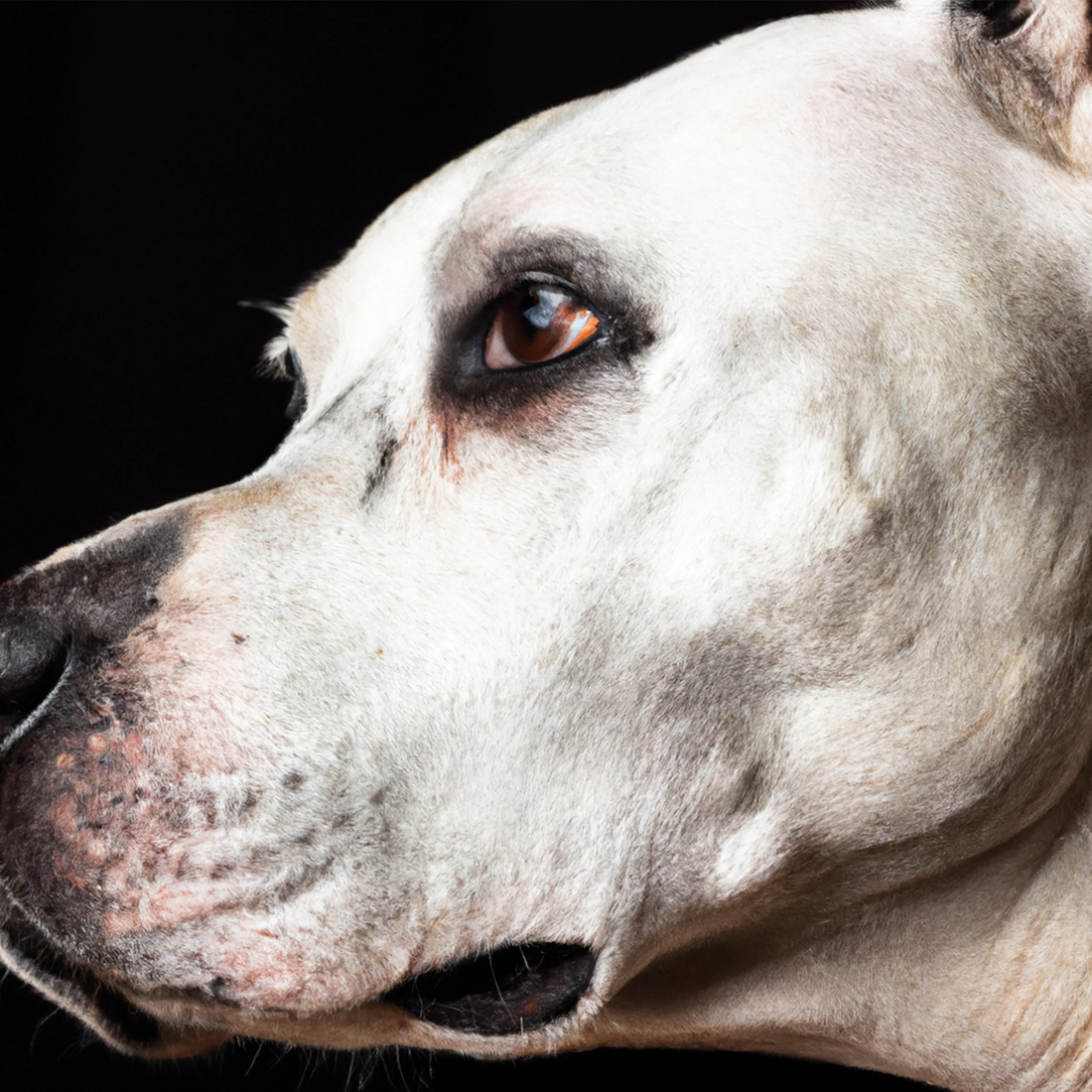
Credit: legendsdogfood.com
Protein: Balancing Quantity And Quality
Selecting the right food for a senior dog hinges on the balance of protein quantity and quality. Discerning pet owners should prioritize nutritionally rich ingredients to support their aging companions’ health.
Importance Of Protein
As dogs age, their dietary needs change. Senior dogs require the right balance of protein to maintain muscle mass and support their immune system. Too much protein can strain their kidneys, while too little may lead to muscle loss. It’s crucial to find the perfect balance for your furry friend’s health.
High-quality Protein Sources
Not all proteins are created equal. Look for foods that contain high-quality protein sources. These include real meat, such as chicken, beef, or fish, as well as eggs and dairy. Plant-based proteins like beans and lentils can be beneficial too, but they should be paired with animal proteins to ensure a complete amino acid profile.
Here’s a table of ideal protein sources for senior dogs:
| Protein Source | Benefits |
|---|---|
| Chicken | High in essential amino acids |
| Beef | Rich in iron and B-vitamins |
| Fish | Contains omega-3 fatty acids |
| Eggs | Complete protein with all amino acids |
| Dairy | Good source of calcium |
| Beans/Lentils | High in fiber and plant-based protein |
When selecting food for your senior dog, check the ingredient list. Ensure real meat is at the top, indicating it’s the main protein source. Avoid foods with generic terms like ‘meat meal’ or ‘animal by-product’ as these can be of lower quality. Also, remember that a variety of proteins can help provide a range of nutrients.
The Impact Of Food Texture On Dental Health
As our loyal companions age, their dietary needs evolve. Senior dogs often face unique health challenges, and selecting the right type of food becomes crucial. A key factor often overlooked is the texture of the food and its effect on dental health. Let’s explore the importance of choosing the right texture to maintain your senior dog’s dental hygiene.
Dental Issues In Older Dogs
Senior dogs are prone to dental problems. These include tooth loss, gum disease, and decreased saliva production. Poor dental health can lead to pain and difficulty eating. It can also cause systemic health issues. A proper diet with the right food texture can help manage these concerns.
Soft Vs. Hard Foods
Owners must choose between soft and hard foods for their senior pets. Each type has its benefits.
| Soft Food | Hard Food |
|---|---|
| Easy to chew and swallow | Can help scrape away plaque |
| Good for dogs with missing teeth | Provides jaw exercise |
| May stick to teeth, increasing decay risk | Could be hard on sensitive teeth and gums |
Combining textures can offer a balance. Crunchy kibble mixed with softer, moist foods can enhance dental care. This approach can also make meals more appealing.
- Consult a vet before changing your dog’s diet.
- Monitor your dog’s response to new food textures.
- Regular dental check-ups are essential.
Choose wisely, and support your senior dog’s dental health through their golden years.
Consulting With Your Vet
When it comes to caring for a senior dog, proper nutrition is crucial. A vet’s guidance can ensure your furry friend gets the best diet for their age and health. Let’s explore when and how to seek professional advice for your senior dog’s nutritional needs.
When To Seek Advice
Not sure if your senior dog’s diet is on track? Signs like weight gain, loss of appetite, or changes in behavior suggest it’s time to consult your vet. Aging dogs may need different nutrients. Your vet can recommend the right food based on your dog’s specific health requirements.
Regular Check-ups And Diet Adjustments
- Bi-annual visits help monitor your dog’s health as they age.
- A vet can assess your dog’s condition and suggest dietary changes.
- They might recommend specialized senior dog food with higher fiber or adjusted protein levels.
Remember, your vet’s advice is essential for your senior dog’s well-being. Stay proactive and schedule regular check-ups to keep your dog healthy and happy!
Special Diets For Medical Conditions
As dogs age, their dietary needs change. Senior dogs often require special diets to manage medical conditions. A tailored diet can significantly improve the quality of life for older dogs with health issues.
Heart Disease
Senior dogs with heart conditions need a diet low in sodium. This helps to reduce the workload on their hearts. Foods rich in omega-3 fatty acids are beneficial. They support heart health. Antioxidants are also important. They protect the body’s cells from damage.
- Low sodium: Essential for reducing heart strain
- Omega-3 fatty acids: Support cardiovascular health
- Antioxidants: Combat cellular damage
Kidney Disease
For senior dogs with kidney disease, the right diet is critical. It should be low in phosphorus and protein. This helps to ease the kidneys’ workload. Non-protein calories are provided instead. This maintains energy levels.
| Dietary Need | Benefit |
|---|---|
| Low Phosphorus | Minimizes kidney stress |
| Low Protein | Reduces waste products |
| Non-Protein Calories | Maintains energy |
Always consult a vet before changing your senior dog’s diet. This ensures the new diet meets their specific health needs.
Transitioning To Senior Dog Food
As your dog ages, its dietary needs change. Senior dog food is formulated to support health during their golden years. Starting the switch is vital for their comfort and well-being.
Gradual Change
Introducing senior dog food should be a slow process. Mix a small amount of senior food with their regular food. Gradually increase the senior food portion over a week or two. This helps prevent digestive upset.
| Day | Regular Food | Senior Food |
|---|---|---|
| 1-2 | 75% | 25% |
| 3-4 | 50% | 50% |
| 5-7 | 25% | 75% |
| 8+ | 0% | 100% |
Monitoring Your Dog’s Reaction
Watch how your dog reacts to the new food. Look for changes in energy levels, digestion, and appetite. Any negative reactions may require a slower transition or a different brand.
- Energy levels: More or less active?
- Digestion: Any upset stomach or changes in bowel movements?
- Appetite: Are they eating happily?
Regular vet visits are essential. They can provide guidance based on your dog’s specific health needs.
The Role Of Antioxidants
As dogs age, their bodies undergo changes that can lead to health issues. Antioxidants play a crucial role in supporting the health and well-being of senior dogs. They help to maintain cellular health and promote overall vitality. Understanding the benefits of antioxidants is essential when selecting the right food for your aging canine companion.
Fighting Free Radicals
Free radicals are unstable molecules that can damage cells. Over time, this damage can lead to aging and illness. Antioxidants neutralize free radicals, protecting your dog’s body from harm. A diet rich in antioxidants is vital for senior dogs to help them combat the effects of aging.
Antioxidant-rich Foods
When choosing food for a senior dog, look for ingredients known for their high antioxidant content. Below is a list of antioxidant-rich foods that can support your dog’s health:
- Blueberries: Packed with vitamins C and E
- Spinach: Contains beta-carotene and lutein
- Carrots: High in beta-carotene, which supports eye health
- Apples: Provide vitamin C and soluble fiber
- Beans: Rich in antioxidants and protein
Look for dog foods that include these ingredients or consider supplementing your pet’s diet with fresh versions for an antioxidant boost.

Credit: www.ovrs.com
Frequently Asked Questions
How Do I Choose A Senior Dog Food?
To choose senior dog food, prioritize high-quality protein and low calories. Ensure it has essential nutrients for joint health, like glucosamine. Opt for easily digestible formulas and consider any specific health concerns your senior dog might have. Consult your vet for personalized advice.
What Is The Best Food To Feed A Senior Dog?
The best food for senior dogs is a balanced diet rich in protein, low in calories, and with added joint-supporting nutrients like glucosamine.
Should Senior Dogs Have Different Food?
Yes, senior dogs often require specialized food that supports their aging bodies and changing nutritional needs.
How Many Times A Day Should A Senior Dog Eat?
A senior dog should typically eat twice daily. Always consult a vet to tailor feeding schedules to your dog’s specific health needs.
What Is The Best Diet For Senior Dogs?
Senior dogs often benefit from diets lower in calories but rich in protein, fiber, and essential nutrients to support their aging bodies and maintain healthy weight.
Conclusion
Choosing the right food for your senior dog is crucial for their health and happiness. Consider their specific needs, consult a vet, and opt for high-quality ingredients. Regularly assess their diet’s impact on their well-being. By doing so, you’ll ensure your aging companion thrives.

